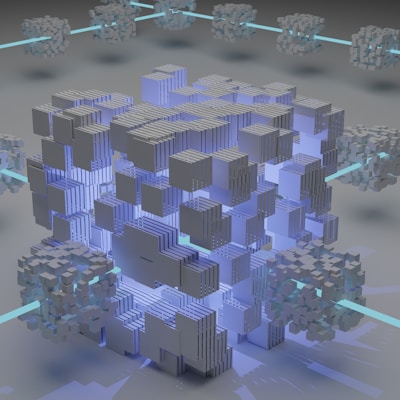Why TRON’s Smart Contracts and Super Representatives Make Blockchain Voting Actually Work
Whoa! Ever dive into a blockchain ecosystem and wonder why some promise so much but feel like a ghost town? Yeah, me too. TRON’s been buzzing on my radar for a while—especially with its smart contracts and governance model. But here’s the thing: it’s not just tech fluff. It’s legit decentralized power actually in the hands of users. Let me break down how TRON’s approach, especially the voting for super representatives, flips the script on blockchain democracy.
Okay, so first off, TRON’s smart contracts aren’t just Ethereum knockoffs. They run on a high-performance blockchain designed to handle tons of transactions at low cost. This matters because, seriously, if you’re paying a fortune in gas fees, the whole “decentralized app” vibe gets murky real quick. TRON’s architecture lets developers build scalable dApps without the wallet hemorrhage. My instinct said this was a game-changer, and digging deeper confirmed it.
Now, about these super representatives (SRs). Initially, I thought it was just another “node” or “validator” thing, but no—TRON’s SRs are elected by token holders. Yeah, that’s right, token holders like you and me get to vote who runs the network. The nuance? It’s a Delegated Proof of Stake (DPoS) system, which is a mouthful but basically means you pick reps to do the heavy lifting, while still holding ultimate power to replace them. Pretty slick, huh?
Here’s what bugs me about some blockchains: they claim decentralization but centralize power in a few hands. TRON’s model, though, is transparent. You can check who the current super reps are, what they’re doing, and even vote for them through your tron wallet. Seriously, the level of user engagement here is refreshing. No endless waiting for mysterious “consensus” to happen behind the scenes.
Smart contracts on TRON operate on the TRC-20 and TRC-10 token standards—think of them like Ethereum’s ERC-20 but faster and cheaper. The ecosystem supports everything from gaming to DeFi, and voting SRs is a critical piece ensuring these contracts run smoothly on a secure, efficient network. I mean, it’s one thing to build apps; it’s another to have a governance system backing them up that users can actually trust and influence.
Check this out—the voting mechanism isn’t just some sidebar feature. It’s baked into the core of TRON’s ecosystem. Users stake TRX tokens to vote on super representatives, and these SRs get block rewards. Here’s where it gets interesting: voters share in the rewards too. So it’s not just a popularity contest; there’s a real incentive to pick reps who actually perform. Oh, and by the way, if you use the official tron wallet, voting is a breeze—intuitive UI, quick transactions, and you can even track your voting power and rewards right there.
Initially, I was skeptical about the efficiency of DPoS systems. On one hand, fewer validators could mean centralization risks. Though actually, TRON’s 27 super representatives are quite diverse globally, which adds resilience. Plus, the community can vote out bad actors. It’s democracy, but turbocharged and on the blockchain. Not perfect, sure, but way better than many alternatives.
Another subtlety: smart contracts on TRON can interact with the SRs’ governance data. Imagine a dApp that automatically adjusts based on who holds power or how votes are cast. The possibilities for dynamic, community-driven apps are huge. This interplay between contract logic and governance is where TRON shines. It’s not just code running in isolation; it’s a living, breathing ecosystem.
Here’s the thing. While Ethereum’s gas fees and slower speeds often push users away, TRON’s throughput and low fees make it practical for everyday use—whether gaming, DeFi, or voting. I remember trying to vote on Ethereum-based DAOs once. Painful delays and fees. With TRON? It’s like flipping a switch. That immediate feedback keeps users engaged and, frankly, invested.
Speaking of investment, the TRON network’s emphasis on community governance via super representatives reminds me of a well-run cooperative rather than a faceless corporation. Users literally hold the keys. And the best part? Voting power is proportional to your stake, but you can delegate it. So even if you’re not a whale, your voice can still matter. That delegation system prevents apathy from sinking the whole ship.
Now, I’m not saying TRON is flawless. The ecosystem has its share of drama, and some super representatives might get cozy with their perks. But the transparency and the community’s ability to vote them out is a built-in corrective measure. It’s like having a board of directors you actually get to fire. And if you want to participate, the official tron wallet is your go-to tool—secure, user-friendly, and well integrated with all these governance features.
Really? Yeah, really. It feels like TRON is quietly solving some problems that other blockchains only talk about. Smart contracts that don’t bury you in fees, a real voting system that empowers users, and an ecosystem that encourages participation. Sure, the devil’s always in the details, and I’m still watching how it evolves. But right now, TRON’s model is one of the most promising blends of technology and governance I’ve seen.
So, if you’re into TRX or any TRC-20 tokens, and you want to get your hands dirty with blockchain governance, don’t just HODL. Vote. Influence. Use your tron wallet to connect to the ecosystem. You might be surprised how much power you actually have. And honestly, it feels good to be part of something that’s more than just a pump-and-dump scheme. It’s a living network, growing and changing with its users.
One last thought before I sign off: blockchain governance is still a wild frontier. There’s no silver bullet. But TRON’s approach with smart contracts tied into a user-driven voting system for super representatives offers a blueprint worth watching. It’s messy, human, and evolving—just like any real democracy. And maybe that’s exactly what blockchain needed all along.


LEAVE A COMMENT